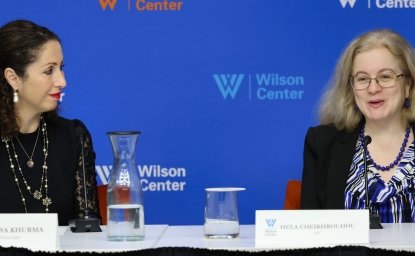#169 The Ideology of Feminism in the Southern Cone, 1900-1940

By Asunci6n Lavrin
From the Introduction
The role and status of women in the society of the three countries known as the Southern Cone of South America (Chile, Argentina and Uruguay) changed significantly in the first four decades of the twentieth century. Such transformation was the result of many complex factors affecting not only women, but society at large. However, because women had been legally and culturally assigned a subordinate position in society, the changes taking place had deep effects on them as a group.
The redefinition of the role and status of women in societies undergoing a process of transformation is the essence of the period under study in this paper. Lavrin's argument is that feminism was the ideology which accelerated the mental and material transition of women from the nineteenth into the twentieth century. Feminism attempted to blend traditional social values with the new social realities, to allow men, and women themselves, to accept and assimilate the changes that were becoming an intrinsic part of their daily realities. This was no easy task for those who called themselves feminists in countries with a strong tradition of roles separation based on gender, and hierarchical divisions of power and authority in society as well as in the family. For this reason, the changes that took place in the first four decades of the twentieth century were of cardinal importance, as they catapulted Latin societies into a process that took much longer to develop in other areas of the world.

Latin America Program
The Wilson Center’s prestigious Latin America Program provides non-partisan expertise to a broad community of decision makers in the United States and Latin America on critical policy issues facing the Hemisphere. The Program provides insightful and actionable research for policymakers, private sector leaders, journalists, and public intellectuals in the United States and Latin America. To bridge the gap between scholarship and policy action, it fosters new inquiry, sponsors high-level public and private meetings among multiple stakeholders, and explores policy options to improve outcomes for citizens throughout the Americas. Drawing on the Wilson Center’s strength as the nation’s key non-partisan policy forum, the Program serves as a trusted source of analysis and a vital point of contact between the worlds of scholarship and action. Read more

Explore More
Browse Insights & Analysis
Latin American Program Working Paper Series (151-200)

How Education Can Empower Young Women in MENA

